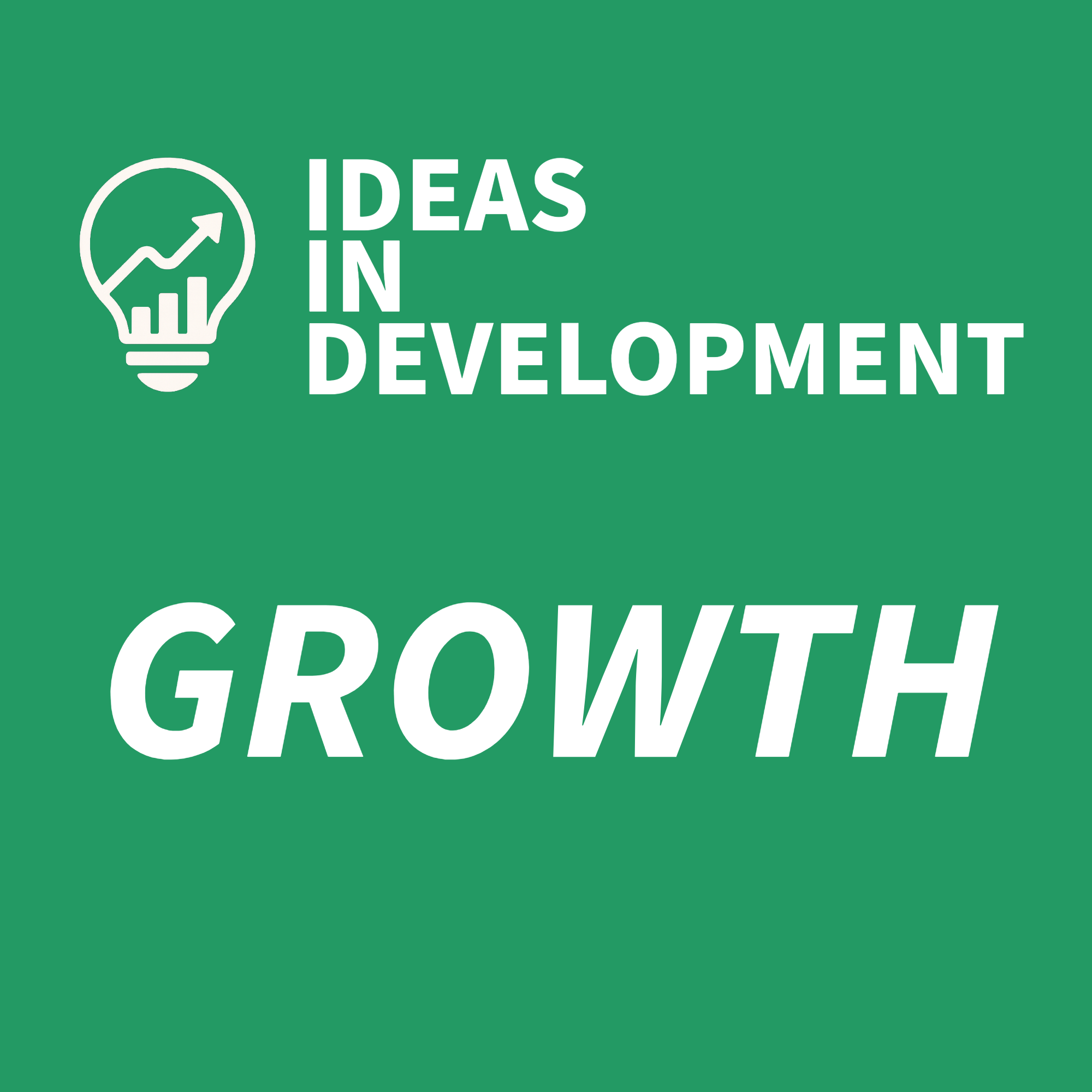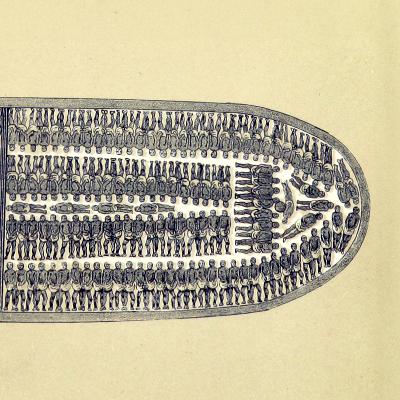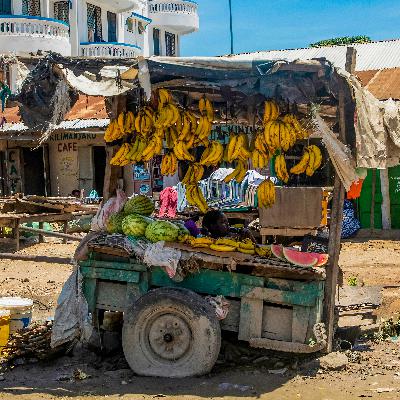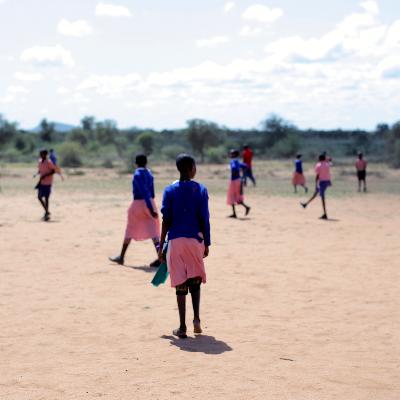Discover VoxDev Development Economics
VoxDev Development Economics

296 Episodes
Reverse
Agricultural yields across sub-Saharan Africa are falling. We can create better seeds, fertilisers and insecticides which has the potential to increase agricultural yields. But what stops that potential being realised? We put a lot of attention on how to influence the behaviour or the choices of farmers, but what can policy also do to help the firms, large and small, that provide the inputs that farmers use? Hope Michelson of the University of Illinois is one of the authors of a new review of agricultural input markets. She tells Tim Phillips about the important gaps in our knowledge of how those markets are working.
The new book The London Consensus is a large and very comprehensive successor to the Washington Consensus that dominated policymaking during the 1990s. It attempts to capture where the Washington consensus fell short, and suggest better policy for development.One area in which we need better policy is basic education. Despite the success of programmes to build and equip schools, outcomes are not improving. Pritchett’s chapter in The London Consensus examines the learning crisis and suggests what policy can do about it. He tells Tim Phillips that there are no short cuts – but examples from around the world show that solutions are possible.
Labor markets in poor countries are very different to labour markets in rich countries. Millions of young people in developing economies who will be starting work in the next few years will face rationed jobs, volatile employment, and low-quality work. How will they cope and how can policy best help them?Emily Breza of Harvard University and Supreet Kaur of UC Berkeley are the authors of a new review of how labour markets in developing countries. They tell Tim Phillips some surprising facts about how labour markets work, what policy can do better – and what we still need to discover to help those young jobseekers find decent work.
Ideas in Development is VoxDev's new second podcast! You can listen to Ideas in Development wherever you get your podcasts, or watch on YouTube. Don't forget to subscribe, so you won't miss an episode.Today we're bringing you one of the episodes from our new series. Oliver Hanney and Kartik Akileswaran ask how Costa Rica, a small country of approximately 5 million people, became an attractive hub that now hosts operations for more than 1,000 multinationals. To take us through this period of economic change, we were joined by Andres Valenciano Yamuni, who played his own role in Costa Rica’s FDI journey during his time as Minister of Foreign Trade.
It’s one thing to enrol kids at school. But that is the beginning of their education. When they are there, they need to learn – and unless that starts with learning to read, we’re failing in our duty to them. A new report, produced by a group of literacy experts and is endorsed by GEEAP, shows that improving the quality of reading instruction can sharply increase reading levels in schools in LMICs, and calls on policymakers to act. Benjamin Piper of the Gates Foundation joins Tim Phillips to talk about what works, and how it can be implemented.
When the work well, carbon markets worldwide decarbonise economies and direct funds to the most efficient projects. Yet for these mechanisms to be effective, credible, and equitable, should we move beyond today’s fragmented initiatives and create a unified global carbon market that would integrate compliance and voluntary markets, with consistent standards and pricing?
Robin Burgess of LSE and Rohini Pande of Yale are authors of a detailed proposal to design and implement this radical concept. Fresh from presenting the report’s insights at COP 30, they join Tim Phillips to explain the potential and transformative impact of a unified market for carbon.
Download the report https://unfccc.int/sites/default/files/resource/Pande%20et%20al%20Draft%20Proposal%20for%20a%20Unified%20Carbon%20Market.pdf
Many papers in economics have shown the scale of the damage that slavery did to Africa, but can we also make the argument that the slave trade helped cause Europe’s economic development? Ellora Derenoncourt of Princeton is the author of a recently published paper which uses new methods and new data to investigate this question.
She talks to Tim Phillips about what historical records can and cannot tell us about that link, and what this data tells us about the growth of European port cities.
At home, men usually have more money and more power than their female partners, and this inequality is particularly wide in LMICs. What does research tell us about how decisions are made and, if there isn’t enough food or money or care to go around, who gets what? And when policymakers try to empower women do their well-intentioned policies work, and can they provoke a backlash? Seema Jayachandran of Princeton and Alessandra Voena of Stanford are the authors of a new review of the evidence, and they talk to Tim Phillips about why women’s power at home is so difficult to measure, and what we don’t yet know about how to increase it.
Intimate partner violence (IPV) is common everywhere, but how common? What are its causes and effects? How can we do a better job of noticing it, measuring its impact – and ultimately, finding effective ways to stop it?
A new review of IPV looks at the recent economic research on the topic, what this work can tell us, and what questions are, so far, unanswered. Manisha Shah of UC Berkeley is one of the authors. She talks to Tim Phillips about why IPV is hard to measure, and even harder to prevent.
Read the full show notes here: https://voxdev.org/topic/health/intimate-partner-violence-causes-costs-and-prevention
The modern state, and the way in which is governs, is clearly very important. It provides social programs, education, disaster relief or, on the other side, it can cause violence and repression.
We tend to assume that there is one model of a successful state, and the emergence of government has followed a single path with, as Francis Fukuyama wrote, “Getting to Denmark” as its end point. But is that the story that the historical record tells? And are successful states today, even in high-income countries, all governed in a way that matches our assumptions?
Leander Heldring of Northwestern University is the author of a chapter on the forthcoming Handbook of Political Economy that examines the historical data and the types of government that have succeeded and failed. He tells Tim Phillips what he has discovered about what types of bureaucracy have succeeded in history, what forms of government that citizens in different times and places have chosen, and whether there is one true evolutionary path to a successful state.
We think of trade-driven growth during the era of hyper-globalisation as having created many “growth miracles” since the 1990s. But how did that happen? If we look at what created these miracles more closely, will that help us to understand how the geopolitical and technology shifts of the last decade have affected, and will continue to affect, the relationship between international trade and development?
Penny Goldberg of Yale and Michele Ruta of the IMF are the authors of a chapter in the forthcoming Handbook of Development that questions many of our assumptions about the role of trade in growth miracles. They tell Tim Phillips about how this engine of development really worked – and why it might not work as well in future.
How can we train the next generation of entrepreneurs? In developing economies, more than a billion dollars a year is spent on this type of training, but does it work, are we training the right people with the right skills – and what opportunities are there to do better?
David McKenzie of the World Bank is one of the senior editors of the latest version of the VoxDevLit on Training Entrepreneurs. He tells Tim Phillips what we know about what training can achieve, why training programmes are not “one size fits all”, and what this all means for policy.
The VoxDevLit on training entrepreneurs: https://voxdev.org/voxdevlit/training-entrepreneurs
What is the relationship between religion and economic development? Does economic development mean fewer people become religious, or more? What causes people to believe, and does organised religion adapt as societies change, and competition from other religions increases?
Sara Lowes of UC San Diego, Eduardo Montero on the University of Chicago, and Benjamin Marx of Boston University are the authors of a new review of religion in emerging and developing regions. They talk to Tim Phillips about how our assumptions about what religion is, and why people believe, are not always accurate – and how an understanding of religiosity can help policymakers understand our motivations and create social policy that is effective.
“ Africa must become a full participant in global knowledge production, not just a passive recipient of solutions from elsewhere.” The journey of Leonard Wantchekon from teenage revolutionary in Benin to professor of economics at Princeton also led him to found the African School of Economics.
In this week's episode, Leonard talks to Tim Phillips about what he learned from imprisonment and torture, how to improve African democracy, the legacy of slavery on trust, and how African economists can contribute to development in the region.
A fascinating new book called A Sixth of Humanity, Independent India’s Development Odyssey examines 75 years of development in the world’s most populous country – the successes and failures, the compromises, and the ways in which India has defied many of our ideas of how development should happen. The authors are Devesh Kapur of Johns Hopkins University School of Advanced International Studies, and Arvind Subramanian of the Peterson Institute, also of course formerly Chief Economic Advisor to the Government of India. They speak to Tim Phillips about what Indian politicians and policymakers around the world can learn from India’s economic transformation.
The book is called A Sixth of Humanity: Independent India’s Development Odyssey. It is published by HarperCollins India. https://harpercollins.co.in/product/a-sixth-of-humanity/
Policymakers and politicians like to talk about creating infrastructure like roads, schools and transport systems: how it grows the economy, provides jobs, and strengthens domestic firms. But that infrastructure needs raw materials, people and constructors to create it. Martina Kirchberger of Trinity College Dublin is an expert on how stuff gets built in developing countries. Are the materials they need expensive? Will a construction boom also create jobs? Are there local firms who can do the work and, if not, who makes projects happen in the global construction sector? She talks to Tim Phillips about investment, partnership, and the surprising cost of cement.
Everywhere, women’s labour force participation is lower than men’s. There are many reasons to close this gap, but there are just as many reasons why it’s hard to do it. Research is discovering new and important insights into how financial constraints, social norms, the backlash from man and the problems of travelling safely reduce the opportunities to work from home. But which policies can change this? Release 2 of the VoxDev Lit on Female Labour Force Participation sets out this research, and Rachel Heath of the University of Washington tells Tim Phillips what it tells us about how work helps women, and policy helps women to find work.
When children are victims of bullying or social exclusion at school, it can be devastating for every part of their lives. This is a global problem, but with a global solution: if we can teach kids about empathy, self-control, or the effects of their violent behaviour, it can reduce bullying. How well do these policies work, and can they be scaled up successfully?
JPAL is about to publish a policy insight on this topic, bringing together the research and summarising what we know. Sule Alan of Cornell University tells Tim Phillips about how we can spot bullying and exclusion in the classroom, and the interventions that work.
Macroeconomists know that our economic activity influences – and is influenced by – the natural environment in which it is embedded, but we have learned that modelling those effects is far from easy. The scientific consensus around climate change is strong, but there’s not similar agreement over appropriate economic policies to deal with it. On the eve of COP 30, a new review of macroeconomics and climate shows how far we have come but also points out where the gaps in our knowledge are.
Adrien Bilal of Stanford University tells Tim Phillips about the state of research, its missing links, and the limits of what economists can do to influence the policy agenda.
How does culture affect development policy, and how does development policy affect culture? If we don’t take account of cultural norms or fail to learn about how they interact with well-intentioned polices, then this gap in our knowledge may be undermining development projects. Can better measurement and collaboration with other social sciences fill these gaps? A new paper investigates what we know about the culture, policy, and economic development, and Natalie Bau of UCLA, Sara Lowes of UC San Diego, and Eduardo Montero of the University of Chicago tell Tim Phillips about the potential, and pitfalls, of research into culture.
























